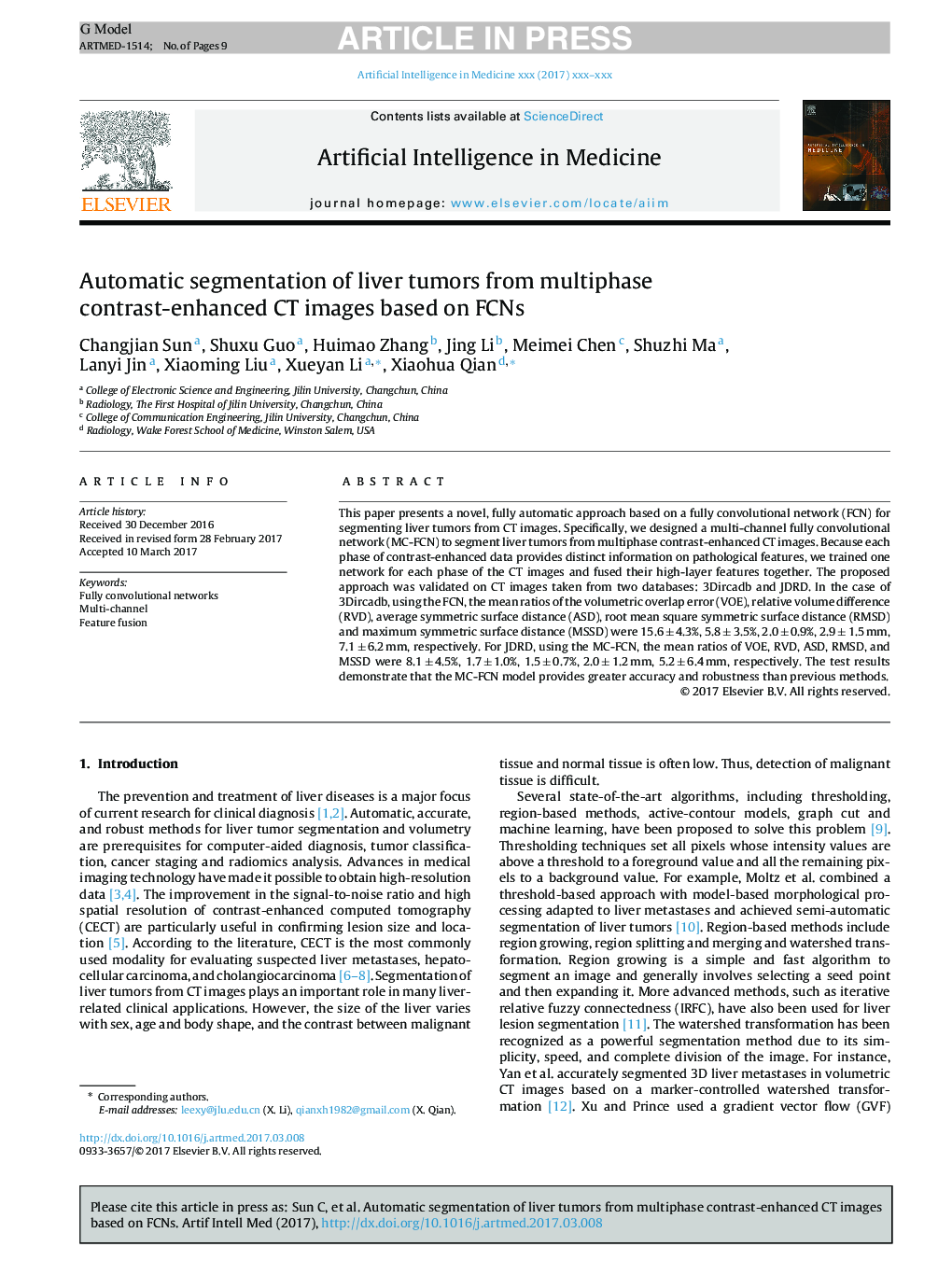| Article ID | Journal | Published Year | Pages | File Type |
|---|---|---|---|---|
| 6853393 | Artificial Intelligence in Medicine | 2017 | 9 Pages |
Abstract
This paper presents a novel, fully automatic approach based on a fully convolutional network (FCN) for segmenting liver tumors from CT images. Specifically, we designed a multi-channel fully convolutional network (MC-FCN) to segment liver tumors from multiphase contrast-enhanced CT images. Because each phase of contrast-enhanced data provides distinct information on pathological features, we trained one network for each phase of the CT images and fused their high-layer features together. The proposed approach was validated on CT images taken from two databases: 3Dircadb and JDRD. In the case of 3Dircadb, using the FCN, the mean ratios of the volumetric overlap error (VOE), relative volume difference (RVD), average symmetric surface distance (ASD), root mean square symmetric surface distance (RMSD) and maximum symmetric surface distance (MSSD) were 15.6 ± 4.3%, 5.8 ± 3.5%, 2.0 ± 0.9%, 2.9 ± 1.5 mm, 7.1 ± 6.2 mm, respectively. For JDRD, using the MC-FCN, the mean ratios of VOE, RVD, ASD, RMSD, and MSSD were 8.1 ± 4.5%, 1.7 ± 1.0%, 1.5 ± 0.7%, 2.0 ± 1.2 mm, 5.2 ± 6.4 mm, respectively. The test results demonstrate that the MC-FCN model provides greater accuracy and robustness than previous methods.
Related Topics
Physical Sciences and Engineering
Computer Science
Artificial Intelligence
Authors
Changjian Sun, Shuxu Guo, Huimao Zhang, Jing Li, Meimei Chen, Shuzhi Ma, Lanyi Jin, Xiaoming Liu, Xueyan Li, Xiaohua Qian,
